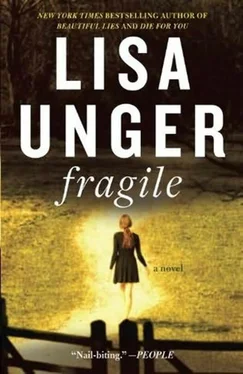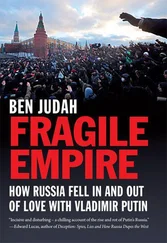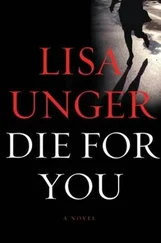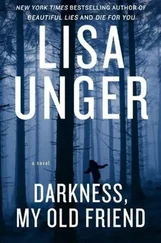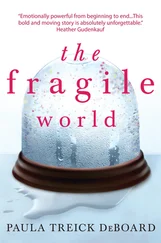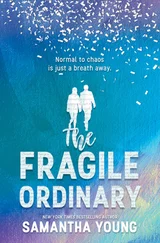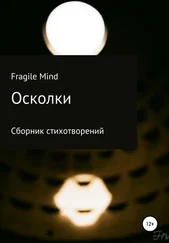Nighttime, not the late hours but the gloaming, when the sun was setting and dinner must be prepared and the long evening stretched out before her-that’s when the loneliness settled in like the ache in her hip on a rainy day, when the regrets, the bad memories, sometimes came to call.
She was glad for nights like this, even though the occasion was grim. It gave a purpose to the evening, something outside her own needs. When Maggie had called, she’d invited herself along to the meeting, though she couldn’t be of much help, maybe just a little support for Maggie and Ricky. God knows where Jones might be in all of this, following up leads, playing the good cop, the town hero. Everyone loved Jones Cooper, always had.
She’d taken her seat toward the front and tried not to eavesdrop on Maggie and Jones.
“I sent a car out to the Crosby home,” he was saying. “There was no one there. Patrol has their eyes open, though I’m using most of the guys for Charlene at the moment, so we’re pretty light out there tonight. And we’ll have someone at the school tomorrow.”
“Okay,” said Maggie uncertainly.
“It’s probably nothing.”
“I know. Except whenever anything awful happens, there are always these clues that seem to have piled up that someone’s about to snap. Clues that no one sees, or brushes aside. I don’t want that to happen here.”
Elizabeth’s son-in-law towered over her daughter, had an attentive hand on her arm. “We won’t let anything happen,” he said.
They were perfect for each other, cops and shrinks always on the front lines trying to save a world that doesn’t want to be saved, that tends inexorably toward entropy no matter what anyone does.
“Why are you frowning, Mom?” said Maggie, coming to join her. Elizabeth heard the edge of annoyance in her daughter’s voice.
“What?” said Elizabeth. She felt immediately defensive. “Now you’re policing my thoughts?”
Maggie released a sigh, pressed her mouth into a line. Elizabeth clutched her bag on her lap and squared her shoulders. At a certain point your child starts to think she can tell you what to do, how to be, everything you did wrong your whole life. Maggie was always on Elizabeth for being sour and judgmental. But there was no one on the face of the earth more judgmental of Elizabeth than her own daughter. The irony of this seemed lost on Maggie. She was so open and compassionate, giving and patient with everyone, even strangers-but when it came to her own mother? Maggie gave Elizabeth a hard time even when she managed to hold her tongue-which admittedly wasn’t often.
“Hey, Grandma.”
Ricky slid past her to sit on the other side of Maggie. He leaned in and offered her a light kiss on the cheek as he passed.
“Hello, baby boy.”
Maggie and Ricky immediately started talking about something to do with the computer, and Elizabeth found herself tuning out, scanning the room. Where was everyone? There were about twenty-five people, all gathered in little klatches, leaning in close, gossiping. Henry Ivy stood on the stage; he’d created a time line of events since Charlene’s disappearance. Elizabeth supposed there would be more urgency if Charlene weren’t suspected of running away. But it was a mistake to be so blasé. It was a mistake they’d all made with Sarah. Elizabeth thought it was a kind of innocence back then, a different idea about the world and how things might unfold. Now maybe it was a desensitization; so many things were wrong and violent and frightening, people just couldn’t react properly to everything.
It was Chief Crosby-he was still that to her, though it had been a dog’s age since he wore the shield-who got her thinking about her secret. She saw him sitting there in the front row, eyes trained on Henry Ivy’s time line. He leaned back, pushing his big belly forward almost with a kind of pride at its girth. His legs were spread wide, his arms folded over his chest. As if sensing her eyes on him, he turned and looked straight at her. She held his gaze, lifted a hand in greeting. He gave her a slow nod.
They were so different than they had been, both of them. They were unrecognizable from the young people they had been together. Elizabeth, for one, was surprised when she looked in the mirror and saw an old woman looking back at her. When did it happen? Chief Crosby was no less deteriorated, though he didn’t seem to be shrinking, as she was. He just seemed to be getting wider and rounder. But his eyes were exactly the same-small, mean, and, worst of all, knowing.
What gave her comfort when she did choose to walk that dark terrain, follow the trail of what-ifs and if-onlys, was that she wasn’t the only person in The Hollows with ugly memories and buried secrets. Not by a long shot.
She gave Chief Crosby a cool smile, and he did the same before turning back around as Henry Ivy called for order.
“Maybe people don’t think a runaway is a reason to call a town meeting,” said Henry Ivy, standing on the stage of the auditorium. He spoke softly, but there was something about him, a quiet way he had, that always commanded attention. Maggie felt the familiar rush of affection for him. She respected and trusted Henry, his motives, his caring for the young people of The Hollows. She often wondered why he’d never married, never even, as far as she knew, dated. For some reason, in their friendship, it was a question she could never bring herself to ask. She sensed that he wouldn’t want to answer.
“But when one of our children goes missing, no matter whether she has run away or is taken from us, it’s reason for concern. Many of you suspect that Charlene has left for New York City. A Facebook message has told us so. For some of you, the youngest among us, this seems like a very romantic notion. But it’s not.”
Someone coughed, and there was a murmur of activity toward the back of the room. Henry looked into the gathering-Charlene’s friends and their parents, mainly, one of Charlene’s teachers, a few people Maggie didn’t recognize.
“Is Melody here?” Henry asked.
Jones walked to the top of the center aisle. “Melody is helping some of our men look through her home for any evidence about where Charlene might be headed,” he said, purposely vague.
But even that was enough to cause a few heads to lean together, some whispering. Maggie saw Amber pull out her cell phone and start tapping on the keyboard. She turned to look at her husband. On her arrival, he’d updated her briefly about Graham, about the search at the Murray home, but he wouldn’t mention that here, knowing that the information would spread quickly, become unmanageable. Maggie herself didn’t know what to make of it. It was inconceivable that Charlene and Graham would have run off together. And, loser that he was, Graham still wasn’t the type to abscond with a minor. But Maggie had known Graham forever; he was really just a buffoon, harmless. Or so she’d always thought.
“So what I’m asking now is, Does anyone have any information on where Charlene might have gone? New York City is a big place; police there have been notified. But the chance of an officer randomly spotting her is unlikely. So what do we know about places she might have frequented, who she might know, where she might be staying? And don’t think you’re protecting her by keeping secrets. Charlene could be in very big trouble.”
He looked out at the crowd. Maggie watched Britney reluctantly rise.
She turned around to look apologetically at Ricky, then said to Henry, “She said she had a boyfriend in the city. All I know about him is that he plays guitar and his name is Steve.”
Maggie looked at Ricky, but he was staring blankly ahead. Elizabeth reached over Maggie and gave Rick a comforting pat on his thigh, but he didn’t seem to notice. That anger at Charlene started to simmer again.
Читать дальше
